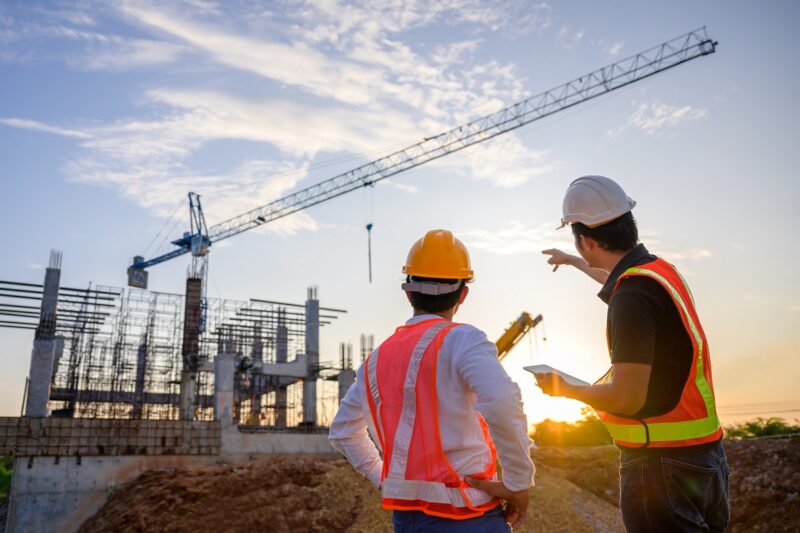When it comes to project management in commercial construction, the best practices are essential for success. Developing and following a clear plan for each project can help ensure that objectives are met efficiently and on time. From budgeting to scheduling, understanding the key elements of effective project management is critical for completing projects with minimal disruption and delays.
This article will explore the various facets of successful project management in commercial construction, from setting goals to managing resources. By utilizing these best practices, you can be sure your projects will stay on track while meeting all desired outcomes.
Establish Clear Objectives and Timeline
When it comes to successful project management in commercial construction, establishing clear objectives and timeline is essential. All stakeholders need to be on the same page when it comes to what is expected of them throughout the project. Doing this will ensure that everyone involved has a comprehensive understanding of the desired outcome, as well as how each task contributes towards achieving said goal. Additionally, setting concrete deadlines helps keep everyone accountable and motivated to complete their responsibilities promptly.
By having an organized plan with set dates for key milestones within your project, you can help make sure everything goes according to schedule and avoid any costly delays or setbacks. To help streamline your commercial construction project management processes, it can be beneficial to utilize technology and software solutions designed specifically for the industry.
To assist with this, the “BuildOps commercial construction technology glossary” can serve as a helpful resource to familiarize yourself with the terminology and concepts related to construction technology. Incorporating these tools into your project planning and execution can lead to increased efficiency, accuracy, and overall success.
Designate Roles and Responsibilities

When it comes to managing a commercial construction project, designating roles and responsibilities is key. Everyone involved must be aware of the tasks they are responsible for, as well as what other team members are doing, to ensure that the project runs smoothly. It’s important to assign clear ownership of each task and make sure all stakeholders know who will be accountable if something goes wrong.
This can include assigning specific people or teams with particular roles such as budgeting, scheduling, quality control, and inspections. Each role should have its own set of expectations regarding deadlines and deliverables so that everyone knows exactly what needs to be done at every stage in the process.
Additionally, communication between team members should be kept open throughout the entire project so everyone is up-to-date on changes or potential issues before they become a bigger problem. Designating roles and responsibilities properly can help keep your commercial construction projects running on time and under budget while ensuring high-quality results for all involved parties
Utilize Effective Communication Strategies
Effective communication is essential to successful project management in commercial construction and should not be underestimated. Project managers must ensure that all team members are aware of their responsibilities and expectations, while also providing clear instructions on how tasks will be executed. They should communicate often with the team, asking questions to encourage active participation and engagement from everyone involved. Managers can use a variety of methods for effective communication, such as face-to-face meetings, emails, phone calls, video conferencing tools or even messaging apps.
Written communications should be concise yet comprehensive; leaving no room for confusion when relaying instructions. Feedback must be given regularly throughout the project so that any potential issues can be addressed quickly before they become major problems. Additionally, it is helpful to have an open dialogue with contractors who may bring industry expertise which could help improve upon the execution of certain activities within a project timeline.
Finally, it pays off to take extra time during planning stages for constructing strategy documents including goals and objectives to better facilitate smoother collaboration between stakeholders throughout a project – this will ultimately result in greater success overall!
Plan for Risk Management

When managing a project in commercial construction, risk management should be at the forefront of any plan. A successful approach to risk management includes identifying potential risks and determining strategies for mitigating them. This begins with an analysis of the project objectives, budget, timeline, and other associated factors that can contribute to risk or have an impact on operations. Once these are identified, it is important to create a plan for how each element will be addressed including cost estimates and timelines for implementation.
The goal is to reduce or eliminate as many risks as possible before they affect progress. To ensure success, all stakeholders must understand the full scope of the process and their roles in reducing any potential risks. Communication throughout this process must also remain open so that issues can be quickly addressed if they arise during execution. With careful planning and effective communication between all involved parties, successful project completion in commercial construction becomes much more likely while minimizing potential losses due to unexpected events or changes in circumstances.


